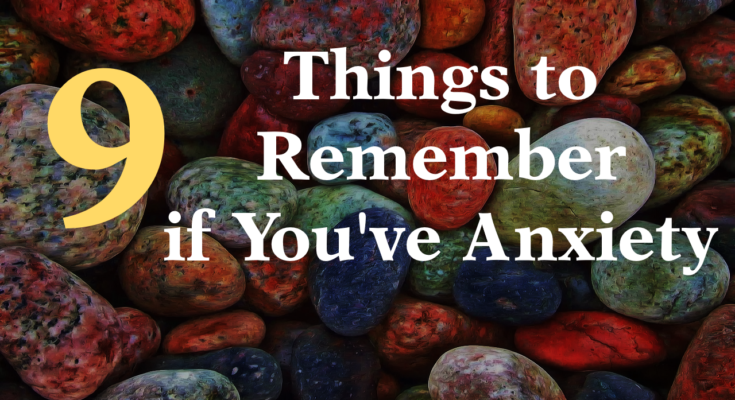9 Expert-Backed Tips to Regain Control
Introduction
Anxiety is a natural response to stress, but when it becomes overwhelming, it can affect your daily life, work, and relationships. The good news? Anxiety can be managed with the right strategies. Whether you’re dealing with occasional worry or chronic anxiety, these nine proven tips will help you take control and restore balance.
1. Challenge Negative Thoughts
Your mind can be your best friend or your worst enemy. Anxious thoughts often exaggerate reality, making situations seem worse than they are.

- Recognize negative thoughts and ask yourself: Is this fact or just my fear speaking?
- Practice cognitive restructuring—a technique used in therapy to challenge and replace irrational thoughts with balanced ones.

2. Practice Deep Breathing Techniques
When anxiety hits, your body reacts with rapid breathing, increased heart rate, and muscle tension. Controlled breathing helps counteract this.

- Breathe in slowly through your nose for 4 seconds.
- Hold your breath for 4 seconds.
- Exhale slowly through your mouth for 6-8 seconds.
- Repeat for 2-5 minutes until you feel calmer.

3. Move Your Body—Exercise Works Like Medicine
Exercise is one of the most powerful, for managing anxiety effectively. It reduces cortisol (stress hormone) and releases endorphins, improving mood and relaxation.

- Walking (especially in nature)
- Yoga (combines movement with deep breathing)
- Strength Training (builds resilience)

4. Limit Caffeine and Sugar
Ever noticed how coffee, energy drinks, or sugary foods can make you feel jittery? Caffeine and sugar can spike adrenaline and increase anxiety symptoms.

- Herbal teas like chamomile or green tea (naturally calming)
- Protein-rich snacks to stabilize blood sugar
- Drink plenty of water (dehydration can mimic anxiety symptoms!)

5. Prioritize Quality Sleep
Sleep deprivation amplifies stress and anxiety, making it harder to cope with challenges.

- Stick to a consistent sleep schedule (even on weekends!)
- Avoid screens at least 1 hour before bed (blue light affects melatonin production)
- Try a relaxing bedtime routine (reading, warm bath, or meditation)

6. Practice Mindfulness & Meditation
Mindfulness means staying present instead of worrying about the future or dwelling on the past. Meditation trains your brain to handle stress better.

- Sit comfortably and close your eyes.
- Focus on your breath—inhale and exhale slowly.
- If thoughts arise, acknowledge them, then return to your breath.

7. Connect with People Who Uplift You
Social support lowers anxiety and improves emotional well-being. Isolating yourself fuels anxious thoughts.

- Reach out to a trusted friend or family member
- Join a support group (online or in-person)
- Engage in community activities

8. Set Boundaries & Learn to Say No
Anxiety often increases when you feel overwhelmed or obligated to please everyone.

- Say no to things that drain you
- Prioritize your mental health without guilt
- Limit exposure to negative influences

9. Seek Professional Help When Needed
If anxiety is affecting your daily life, professional therapy can help. Cognitive Behavioral Therapy (CBT) is highly in managing anxiety effectively.

- If anxiety interferes with work, relationships, or daily tasks
- If you experience panic attacks or chronic stress
- If self-help techniques aren’t enough

Final Thoughts: Take Control of Anxiety Today
Anxiety is manageable, and you don’t have to struggle alone. By implementing these proven techniques, you can regain control, improve mental well-being, and live with less stress and more peace.





